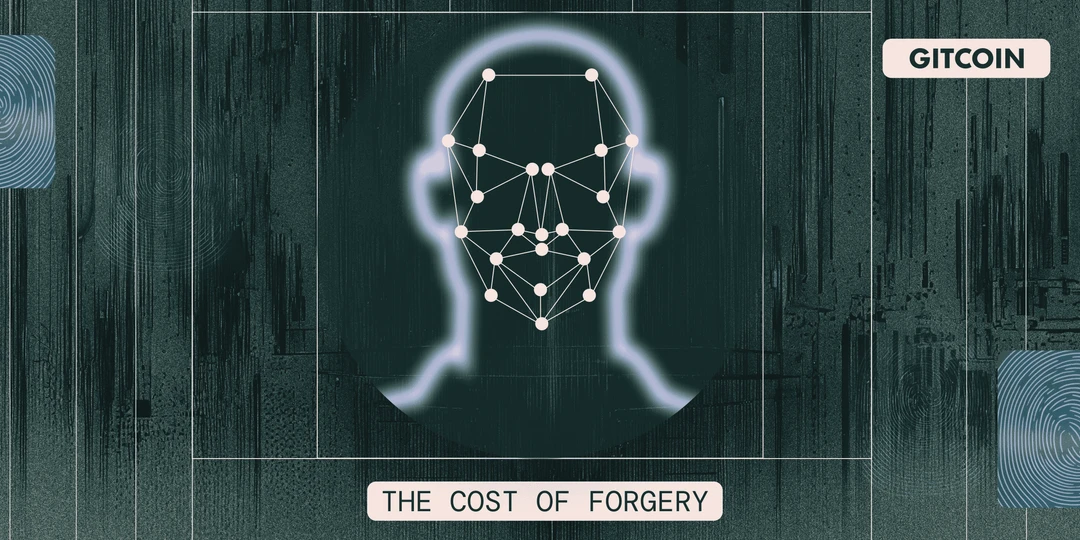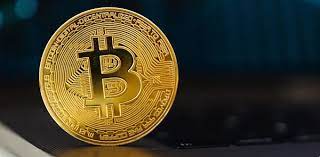Interview with Zhu Jiaming: The era of blockchain and currency diversification is coming
In 1984, Zhu Jiaming, Huang Jiangnan and others launched a seminar for young and middle-aged economic scientists in Moganshan, Deqing County, Zhejiang Province. The conference was called "a pioneering event in the history of economic reform thoughts", and it was the first collective voice of young economic workers. It has far-reaching influence and is known as the "Moganshan Conference" [1]. Later, Zhu Jiaming studied and taught at the Massachusetts Institute of Technology, Harvard University, Vienna University, and Taiwan University. He not only maintained his concern for economics, but also worked hard and published many monographs.
In economics, Zhu Jiaming pays special attention to currency. He believes that in economic history, the monetary economy is the foundation of economic activities, economic organizations, and economic systems. The monetary economy supports the market economy and the operation of all real economic sectors. In an interview with Zero Finance and Binary, he proposed that the essence of money is trust. The legal currency issued by modern countries and governments cannot violate the premise of "currency issuance, based on trust." He divided the Chinese monetary economy into two stages: “metal/traditional currency” and “credit/modern currency”. The former covers two thousand years since the Spring and Autumn Period and the Warring States Period. It has used copper coins as the main currency and experienced the re-registration of silver and silver coins. The silver dollar was the legal currency in four stages. By 1933, the National Government "discarded two yuan" (referring to the abolition of silver and issuing silver dollars) and established the silver standard. He further explained that in China, the government monopolizes the coinage rights but before the War of Resistance Against Japanese Aggression. By 1935, the issue of legal currency opened the history of modern Chinese currency.
In his view, the blockchain and digital currency that emerged in 2008 showed the transformation of the era when the government issued the legal currency and the French currency monopolized the monetary system, and the monetary system showed the possibility of returning to “diversity”. Based on this understanding, in the past year or two, Zhu Jiaming established the Digital Assets Research Institute (CIDA), initiated a blockchain mathematics conference, blockchain economics conference (in preparation) and other international summits, and continued to be blocks. Chain sounds. He believes that the future digital currency will coexist with the legal currency for a long time. Regarding Bitcoin, he proposed that it has no mission to replace the national currency, should not give meaning that it does not exist, and its open source nature also determines that it will not become the only currency of the future world.
Interviewee|Zhu Jiaming Questioner|Zero Finance·Bianry
- OK first disclosed OKUSD issue: Based on OKChain, anchoring USD, compliance is the primary purpose
- Babbitt column | Is the blockchain field more suitable for small companies to start a business, or is the big company self-improvement?
- Tencent's cat: How did the blockchain cats come together to catch the demon?
Question and answer
About currency
Zero Finance: Binary: Can you briefly introduce the classics and your understanding of your history of monetary economics?
Zhu Jiaming: China has a lot of research results on monetary policy, and some scholars have studied the general history of monetary economy. However, it is generally written in the first half of the 20th century. Representative works include at least Mr. Zhang Jiaxuan’s History of Chinese Coins published in 1925 and Mr. Peng Xinwei. Published "The History of Chinese Currency."
Money should have been free. As far as China is concerned, China's currency monopoly history is quite short, and it was only in 1935 that the monopoly was completed. Before 1935, China's monetary system was relatively free. There is a very influential saying in history that attributes the backwardness of Chinese history to the state of free currency. But I don't think so. The economic development and maintenance of China for thousands of years is precisely because of this free currency state. This is why I support the currency from freedom to monopoly, then return to freedom, at least diversification. China's free currency tradition is the oldest and the longest in history. Before 1933, the Chinese monetary system was dominated by silver. Since 1933, China began to "abolish two yuan," and officially issued a currency in units of silver dollars, just like "Yuan Datou." In China, the "waste two reforms" began in the last years of the Qing Dynasty and was finally completed in 1933. This is equivalent to the first formal involvement of the Chinese government in the currency sector.
Zero Financial: Binary: Some people think that money itself has no value, and the value of money comes from the national credit anchored behind it. Where do you think the value of Bitcoin comes from? What is it anchored? Is it a gray economy? Still the value of a premium blockchain project?
Zhu Jiaming: The essence of money is trust. This trust does not depend on whether the issuer is a state or an individual. The history of state involvement in money has only been around the world for hundreds of years, arguably after the establishment of the Bank of England. In the history of mankind, there have been historical stages in which any individual, community, and economic entity can issue money. There is no need for reserves or anchoring. The currency that people think today is only a short period in the history of human currency, ranging from three to four hundred years to as little as one hundred years. Before the government intervenes in the monetary system, individuals and units can issue coins.
As for the currency you send, is anyone willing to ask, that is another question. Because the essence of money in the classical sense is trust, there is no need for reserves, no anchors, and no government-led, state machine strengthening. Now the state needs to ensure the trust of the people in the legal currency through the strengthening of the central bank and related laws, which is a specific phenomenon in a specific historical stage. Further, the currency does not necessarily need to be traded, and the currency that does not realize the transaction is not necessarily the currency. Many people now understand and understand currency and are bound by personal experience. People take it for granted that the currency should be like the renminbi, the dollar, the yen and the euro today. The currency is issued by the state, and the currency must have national sovereignty. In fact, the history of money and the experience of people are very different.
For example, from the late 19th century until the War of Resistance Against Japanese Aggression, at any beach in Shanghai, any foreign bank could issue currency. There were at least dozens of currencies. During the entire Chinese war of resistance, in addition to the French currency, there are other major currencies, including the currency of the anti-Japanese base areas. In addition, there are at least five or six. Of course, the concept of monetary sovereignty is very important. However, the original monetary sovereignty is in the private sector, not the state. The Fed was private before and has little to do with the government. To this day, a large part of the Fed’s equity is in private hands. The Bank of England used to be a typical private bank. Many people in these history are not enough to understand, and they need some kind of historical knowledge to literate, otherwise they will easily fall into cognitive dilemma.
The dollar is a de facto world currency. However, the US dollar is not simply a result of the US national credit and state power pushing it to its present state, but a natural process and a process that is gradually accepted by the whole world. Furthermore, the history of the evolution of the US dollar is very different from that of the renminbi. In the 1930s and 1940s, the US dollar was signed by several Federal Reserve countries. At that time, the United States had the United States dollar in the New England area, the US dollar in the California area, etc., all of the same, but the signatures were different. One of my friends, the surname is Morss, and his grandfather was the signer of the New England dollar at the time. On the wall of their home, the dollar signed by his grandfather is counted as a historical glory. In other words, the dollar was once diversified. It is now too easy for people to imagine the diversification and diversification of the currency in their own experience with the renminbi or other sovereign currencies.
The reason why I support bitcoin and blockchain is to prove that the currency has the technical means and possibility of returning to its original state. This is also the ideal of Hayek. In the contemporary world, the state and the government completely monopolize the currency, which is equivalent to the government's source of wealth control. When the government is willing to issue more money, leading to inflation and shrinking wealth, there is basically no good way for the people to stop it.
In recent years, the Estonian digital currency industry has become a climate, at least because it provides institutional guarantees for currency liberalization. From Northern Europe to the Baltic States, there is a pirate tradition, and don't underestimate the positive and positive contribution of pirate culture to history.
The history of money is a very interesting thing. Keynes believes that if the currency is re-examined, it will change people's overall view of history. However, he has not fulfilled his wishes for the rest of his life.
About blockchain and digital currency
Zero Finance · Binary: When did you start to understand the blockchain?
Zhu Jiaming: I saw it after a few months of the publication of Nakamoto's Bitcoin white paper. At that time, I still regarded it more as a social experiment, a new idea, and did not turn it into my action. It was not until the summer of 2009 that I had to understand the blockchain in detail because I had to give classes to students. I found that it was more in line with my thoughts on the monopoly to freedom of money. Because money should be competitive and non-state, this is Hayek’s core idea.
Zero Financial • Binary: What do you think about the digital currency issued by companies like JP Morgan?
Zhu Jiaming: This is a return. Now more and more people, especially young people, are returning in various ways, so I said that it has opened "great transformation", that is, "great transformation." In the area of blockchain and encrypted digital currency, even with the government's increasingly strengthened supervision and regulation, blockchain and encrypted digital currencies continue to expand their influence and begin to form a group based on encrypted digital and bitcoin. Of course, people are gradually seeking to compromise with the government, the so-called compromise, so that new things can survive in the existing regulatory system.
As for the three words of stable currency, it has attracted a lot of attention, but any single currency is difficult to bear the function of the stable currency. That is to say, there is never a single form of stable currency in the world. Therefore, one should not pursue the stabilization of a currency. What should be pursued is to stabilize the currency "system." Nowadays, many concepts are seriously misunderstood, even misinterpreted, and need to be interpreted in all directions. For example, everyone is talking about "science," but there is no ultimate definition and interpretation of "science." Because science is really a highly dynamic human activity. No single noun can cover the connotation of its rapid evolution.
Zero Financial • Binary: So why do you think that Morgan coins need to be linked to the US dollar?
Zhu Jiaming: The message conveyed by Morgan Coin is: anchoring sovereign currency and forming a cooperative relationship with the current monetary authorities to survive. Now, with the help of the US dollar credit, it is at least propaganda to propose a relatively stable encryption digital currency and traditional currency model. The significance of the Morgan Coin is that the era of more and more institutions issuing digital currencies has begun. A parallel world of legal and non-digital currencies has been formed, and the latter will grow rapidly and even expand.
Therefore, there will be two major types of currencies in four categories in the future: the first category, the legal currency of the government, can be divided into non-digital and digital legal tenders. Not all legal tenders will be converted into digital ones, but will be a coexistent state. In the second category, the illegal digital currency will be centralized, and the centralized illegal digital currency and the decentralized illegal digital currency will appear. The former refers to the digital currency issued by IBM, Facebook, JP Morgan, etc., and the latter refers to the inclusion of bitcoin. Thousands of digital currencies within. This has formed a very diverse picture and will develop rapidly.
Zero Financial • Binary: Will there be illegal or non-sovereign digital currency in China?
Zhu Jiaming: China is not possible now. However, in the world, the digital currency of illegal and illegal rights has already surged. However, China's allowable non-circulating tokens are already a variant. No era of money can be in an absolute monopoly in the future monetary and financial system. This era has arrived. In the century, it is impossible for the monetary authorities to eliminate all "heterogeneous".
About Bitcoin
Zero Finance · Binary: Do you think Bitcoin is a currency? Or an asset with value-added attributes?
Zhu Jiaming: Bitcoin is a currency, a specific currency, because Bitcoin has the basic function of money. The reason why the US government does not define bitcoin is money, but regard it as an asset, which is conducive to taxing bitcoin transactions and avoiding being involved in a very complicated problem of "what is money." Money is also value-added: money generates interest, and interest leads to currency appreciation.
What needs to be clear is that in the long history of money, quite a lot of money does not need to be stocked. In the gold standard era, gold is a currency and a "reserve." Before the Brinton Forest Conference, there was no simple set of rules and standards between the currencies of the countries of the world. Currency is credit. Everyone needs a tool for trading. This tool is "trust." The form of "trust" is money. Gold and silver originally became money because they belong to precious metals and are relatively rare; why chocolate cannot be a currency because it melts quickly in the sun. Money is not so sacred, but everyone is not yet understanding the currency.
One of the key points that I have repeatedly said today is that since 2008, because of the generation of bitcoin and blockchain, humans are now returning in another way. This kind of return is that among the eight billion people today, it is difficult for people to trust each other. Only rely on the government, and if the government is untrustworthy, it needs a tool to support trust. This tool is now clearly seen by everyone, that is, the blockchain. The blockchain can re-establish trust mechanisms based on what each line is.
Zero Finance · Binary: So do you think Bitcoin is likely to replace the US dollar?
Zhu Jiaming: I am not willing to answer such questions. In my opinion, legal tender and illegal digital currency will exist in parallel for a long time to come. Before 2008, we can see that one side of this parallel system (referring to the illegal digital currency) is very weak, but it is growing very fast and is becoming more diverse. In the process of diversification, IBM, JP Morgan, and Facebook are all new factors of diversification. It produces a legally based, but centralized, non-sovereign digital currency system based on Bitcoin.
This is like the currency issued by HSBC. HSBC is now issued under the control of the Central Bank. On the eve of the return of Hong Kong, according to the Basic Law, HSBC and Standard Chartered Bank were placed under the control system of the Central Bank of China. However, this is not the case in history. HSBC has the autonomy to issue and is not subject to administrative power. People are willing to buy or use HSBC's Hong Kong dollars, depending on the people's trust in HSBC.
Zero Finance: Binary: How do you view the plunge in bitcoin and other mainstream currencies in 2018, and the strength of the USDT that claimed to anchor the dollar? What do you trust is the blockchain technology used by USDT or the dollar behind it?
Zhu Jiaming: This is not a question of having to choose between A and B. Just last year's encrypted digital market, people believe that USDT is more stable than other illegally encrypted digital currencies. In this case, many people are willing to hold this currency.
However, after all, the USDT has not been officially recognized, and it is difficult to maintain a 1:1 exchange relationship with the US dollar. In fact, the USDT is a situation in which an institution issues a currency and claims to anchor the dollar, and the government has not denied that you anchored the dollar. That is the case.
Zero Financial • Binary: Do you think Bitcoin has the possibility of inflation?
Zhu Jiaming: There is no inflation. Even if it is a fork, it will not lead to inflation. Bifurcation does not lead to an increase in total value, which has been proven by the history of Bitcoin. This is a misunderstanding that everyone usually understands Bitcoin in the common currency.
Zero Financial • Binary: Do you think there is an independent economic cycle in the cryptocurrency world? Or is this cycle closely related to the real economic world?
Zhu Jiaming: There is no obvious cycle. Strictly speaking, the cycle of encrypting digital currencies has little to do with the current economic cycle. The main reason is that the size of encrypted digital currency is still very small. Only a few people hold bitcoin and bitcoin. Bitcoin and other encrypted digital currencies have low penetration rate in traditional economy. However, it does not mean that the future has no impact on the economic cycle. The most important thing to note about Bitcoin is: First, Bitcoin derives hundreds of other encrypted digital currencies in history, which constitute "groups". Second, individuals or groups with the largest voice of Bitcoin do not dare to violate the bits. The rules of the currency. If you dare to violate it, it may be the end of the same, and these people can't form the de facto majority. This is the charm of Bitcoin; third, more and more young people of "X, Y, Z" are born to accept bitcoin and other encrypted digital currency. They represent the future.
Zero Finance: Binary: There is no possibility of existence: governments jointly strangling bitcoin, accounting for more than 51% of the world of Bitcoin?
Zhu Jiaming: There is no possibility, and it is difficult for countries to reach a consensus. The computing power of the Bitcoin network exists in the cloud, and Bitcoin is still produced according to the established time, maintaining the vitality of Bitcoin. The difficulty of digging bitcoin is actually the key to the stability of Bitcoin's value. The more computing power you add to mining, the more difficult it is to dig out Bitcoin. There is still enough time to observe the future of Bitcoin. In any case, Bitcoin is the most exciting and intelligent invention and innovation of mankind in the 21st century. Note: In 2012, the International Cooperation Center of the National Development and Reform Commission restarted the “New Moganshan Conference”, which is held every year and continues to this day.
Author: Choi Jin
Source: Zero Finance · Binary
We will continue to update Blocking; if you have any questions or suggestions, please contact us!
Was this article helpful?
93 out of 132 found this helpful
Related articles
- Blockchain and quantum computer space
- Blockchain 3.0 Anniversary: Iterating for Landing Applications, Blockchain 3.0 Technology Progress
- Twitter Featured: The UK's largest travel company accepts bitcoin payments; SBI will be removed from BCH
- Blockchain combined with identity authentication, not getting lost in the digital world
- The exchange has a large blockchain governance power – the center of power in a decentralized world
- Twitter Featured: Coin Security decided to take down BSV; ConsenSys seeks $200 million financing
- Community Governance, PoW Workload Proof and Commercialization






